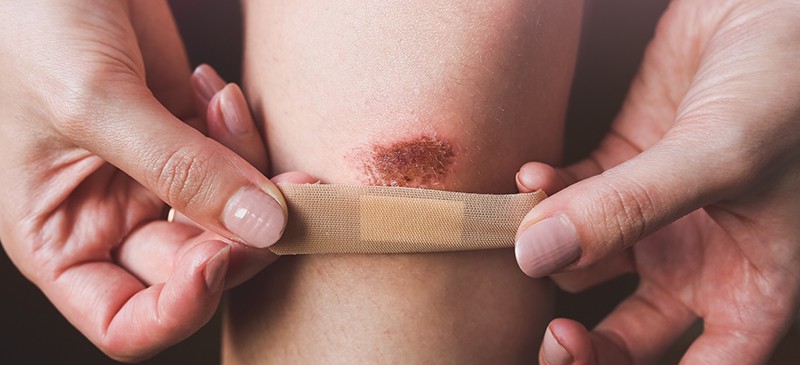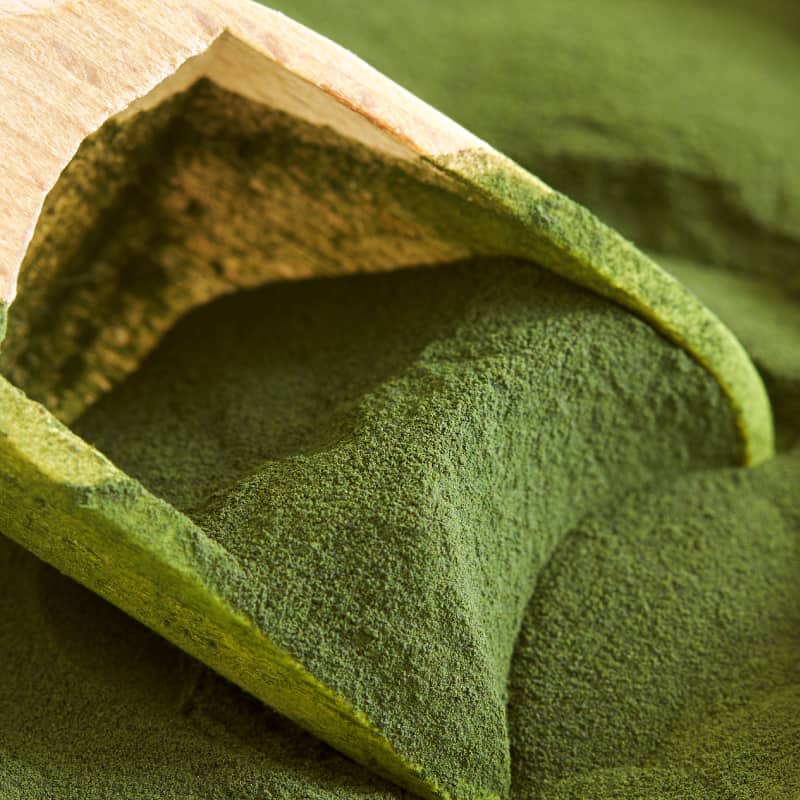This Dr. Axe content is medically reviewed or fact checked to ensure factually accurate information.
With strict editorial sourcing guidelines, we only link to academic research institutions, reputable media sites and, when research is available, medically peer-reviewed studies. Note that the numbers in parentheses (1, 2, etc.) are clickable links to these studies.
The information in our articles is NOT intended to replace a one-on-one relationship with a qualified health care professional and is not intended as medical advice.
This article is based on scientific evidence, written by experts and fact checked by our trained editorial staff. Note that the numbers in parentheses (1, 2, etc.) are clickable links to medically peer-reviewed studies.
Our team includes licensed nutritionists and dietitians, certified health education specialists, as well as certified strength and conditioning specialists, personal trainers and corrective exercise specialists. Our team aims to be not only thorough with its research, but also objective and unbiased.
The information in our articles is NOT intended to replace a one-on-one relationship with a qualified health care professional and is not intended as medical advice.
6 Natural Ways to Care for Abrasions at Home
January 11, 2019

Have you ever scraped your knee on pavement? If your answer is “yes,” then you’ve already experienced an abrasion. A classic “skinned knee” often experienced by kids as well as adults is one of the most common or well-known forms of an abrasion.
Abrasions are typically painful and bleed right away, but as with all skin injuries, they can be put on a spectrum of severity. Often, an abrasion is minor or superficial, yet it’s still a wound that needs to be treated properly to prevent infection and encourage optimal healing.
How do you heal an abrasion fast? There are a lot of natural ways to encourage healing and ward off harmful bacteria including through your diet, essential oils and some household items you probably already have on hand!
What Is an Abrasion?
To simply define abrasion: it’s a superficial rub or wearing off of the skin, which is usually caused by a scrape or the friction of skin rubbing against a surface. Abrasions may involve the epidermis (the top layer of skin) or some/all of the dermis (the layer of skin below the epidermis).
Most of the time abrasions are minor skin injuries that can be treated at home. You should follow basic first aid instructions, including keeping the area covered with a clean bandage. This will help to keep the abrasion from any further rubbing that can cause additional bleeding or drainage in addition to what occurred after the skin was initially abraded.
There are abrasions called raspberries/strawberries/road rash which are typically bright red and painful but generally only involve the outer most layer of skin (the epidermis). A more traumatic abrasion that removes all layers of skin is called an avulsion, which always warrants emergency medical care.
How long do abrasion wounds take to heal? Minor abrasions only take a short time to heal, while more severe abrasions can take weeks or even months to completely heal.
Abrasion vs. Cut vs. Laceration
So, you already know the basic abrasion definition: a skin scrape that may involve the epidermis or part or all of the dermis. A cut is a skin opening or incision caused by a sharp-edged tool or object. A laceration is a tearing of the skin that results in an irregular- or jagged-shaped wound. Sometimes the words “cut” and “laceration” are used interchangeably.
Lacerations are often more serious than abrasions because lacerations can extend very deep into subcutaneous tissues, including underlying muscle, internal organs or bone. Lacerations often require stitches. Symptoms of abrasions, cuts and lacerations include bleeding, pain and inflammation. Signs of an infected cut, abrasion or laceration are all similar and include increased pain, redness, swelling and/or foul odor.
Causes of Abrasions
If you abrade your skin, there can be a lot of possible causes. In general, abrasions are the result of your skin scraping against a surface that is rough. This contact and friction between your skin and the surface cause your skin to be rubbed away to some degree. Most of the time, abrasions affect the top most layer or epidermis. One of the classic causes of abrasions is a fall (while walking, running or biking for example) that results in your knee making contact with the pavement.
Conventional Treatment
How do you treat an abrasion? If it’s minor, you’ll want to follow some basic wound care guidelines. First, rinse and clean the abrasion right away by holding the area under lukewarm tap water for a few minutes. Many people reach for the peroxide or alcohol when they have a wound, but this may only harm skin tissue and slow healing. If you need to remove any dirt or particles from the abrasion, try to do so gently and do not scrub the wound. Then apply an antibiotic ointment and cover with a clean bandage, which you should change daily or more often if it becomes wet and/or dirty.
This is conventional first aid for an abrasion, which would be about the same if you were taking a natural route … minus the antibiotic ointment; instead, you may choose to use an antibacterial essential oil diluted with a carrier oil or a natural wound treatment balm (more on this in the next section).
Do wounds heal faster covered or uncovered? Keeping wounds covered creates a moist environment that encourages healing and reduces the likelihood of scarring. Once a scab has formed, you may not need to use a bandage anymore, but you still need to make sure you keep the area clean. If the scab is in an area that may rub up against something, then a bandage can continue to be a wise choice because ideally you want the scab to fall off on its own and not by accident.
If you have a severe abrasion, you should seek medical attention right away. In the meantime, apply pressure directly to the wound to stop bleeding.
6 Natural Ways to Treat Abrasions at Home
1. Up Your Zinc Intake
Zinc is one of the most key nutrients for healing skin injuries fast. Having a zinc deficiency can even slow down the wound healing process. A scientific article published in the journal Nutrients in 2018 highlights zinc’s vital role in regulating every single phase of the wound healing process. Researchers believe that zinc can help to “greatly advance the treatment and care of difficult-to-heal wounds.”
To get more of this wound-healing nutrient in your diet, you’ll want to consume zinc-rich foods daily such as grass-fed beef, pumpkin seeds, cocoa powder and kefir. You can also take a zinc supplement.
2. More Vitamin C
Another major wound-healing nutrient is vitamin C, which helps the body to manufacture collagen. Like zinc, vitamin C is said to play a key role in all phases of wound healing.
There are a number of foods high in vitamin C that can help up your intake, including guava, bell pepper, kiwi, kale and parsley. Supplementing with vitamin C is also an option.
3. Avoid Foods that Slow Healing
There are some foods you’ll want to avoid if optimal healing is your goal, including:
- Alcohol: Can increase inflammation, which is counterproductive to healing.
- Sugar and refined grains: Promotes inflammation and slows healing.
- Processed foods: Often contain hydrogenated oils, chemicals, dyes and other questionable additives, which can slow wound healing.
4. Consume More Collagen
Did you know that collagen is the most abundant protein in the body and gives structure to your skin? It’s true! It’s also a major part of wound healing because collagen helps the new skin come back where it is missing. Topical use of collagen in wound dressings is known to encourage new tissue growth.
Internal use of collagen may also encourage wound healing. To get more collagen in your everyday diet, you can make homemade bone broth, or you can take a protein powder made from bone broth, which is very rich in collagen.
5. Use Essential Oils
To ward off infection naturally, you can use essential oils like tea tree and rosemary, which have powerful antibacterial properties against a wide variety of bacteria and fungi. Remember to always dilute essential oils with a carrier oil like coconut oil in a 1:1 ratio before applying it. Coconut oil also increases the moisture level of the skin, which is great for healing.
6. Topical Honey Application
Honey can help to clean a wound, reduce pain, decrease signs of infection and even speed up the healing process. Research demonstrates the effectiveness of honey as an antiseptic wound dressing. What’s so amazing is that honey actually reacts with the body’s fluids to make hydrogen peroxide, creating an inhospitable environment for bacteria to grow.
For abrasions, you can apply a high-quality honey directly to the area or in a dressing (that you should change every 24 to 48 hours). You can also create this easy homemade healing salve by mixing raw honey with olive oil and adding antibacterial essential oils like tea tree to the mix.
Precautions
Seek medical attention for abrasions that:
- Are in the eye (corneal abrasion), close to the eye or on the face
- Contain embedded debris such as gravel or dirt
- Show signs of infection including increased pain, warmth, redness, swelling, odor, drainage or red streaks around the wound
If you have any weeping wounds, this can be a sign of healing if it occurs initially, but it’s a good idea to soak up that extra fluid so it doesn’t become counterproductive to the healing process. And again, never pick at a scab since this can lead to an infection and/or scarring.
Discontinue use of essential oils or any other natural remedy if sensitivity develops. In general, always keep essential oils away from your eyes and other mucous membranes. Check with your healthcare provider before using any natural remedies including essentials oils if you are pregnant, nursing, are receiving treatment for a medical condition or are currently taking medication.
Final Thoughts
- An abrasion is a skin scrape that may involve just the top layer of skin (epidermis). It can also include part or all of the layer below that (the dermis).
- An avulsion is a severe version of an abrasion where all layers of the skin have been torn away.
- You can encourage optimal healing of abrasions by:
- Eating a whole foods diet high in helpful nutrients like zinc and vitamin C
- Avoiding counterproductive items like processed foods, high sugar sources and alcohol
- Getting more collagen in your diet through the use of a protein powder made from bone broth and/or consuming collagen-rich foods like bone broth
- Using honey, essential oils and coconut oil topically
- Always seek urgent medical care for a severe abrasion and follow doctor’s instructions for home wound care after treatment.











